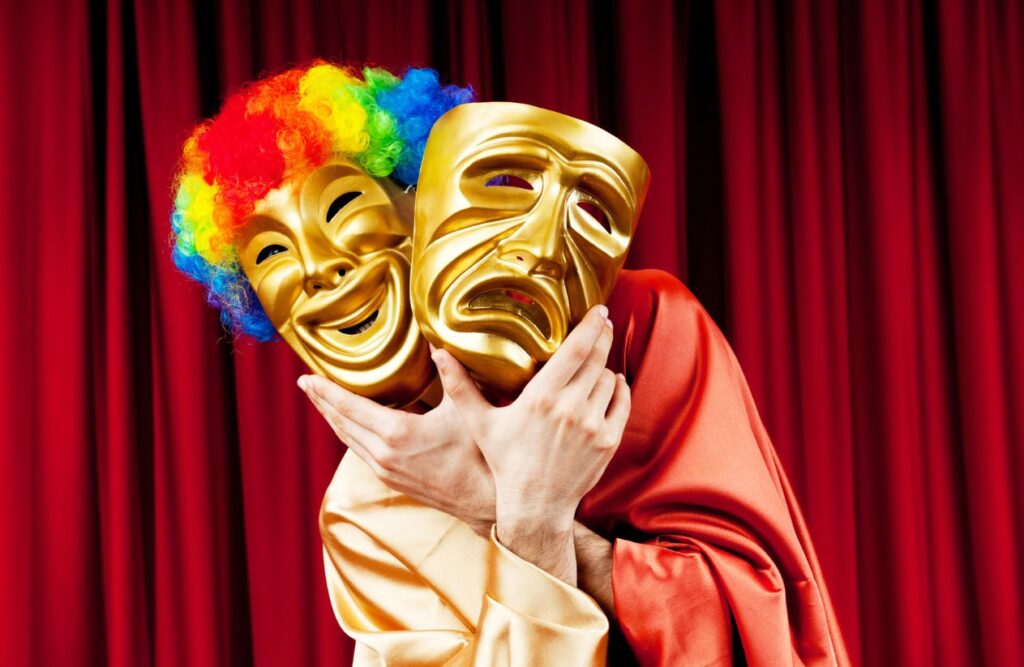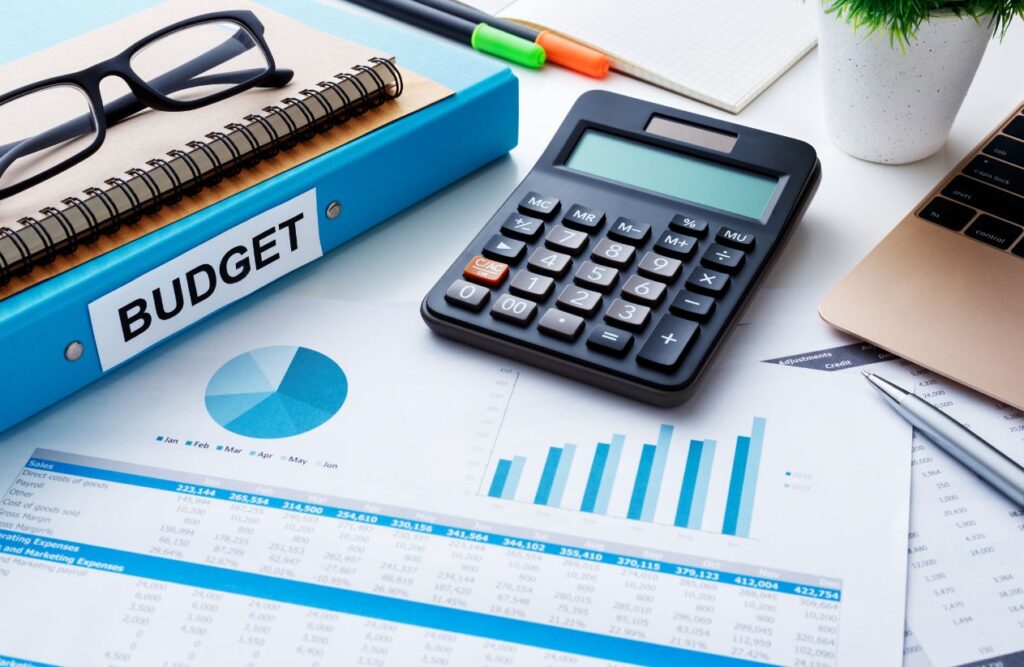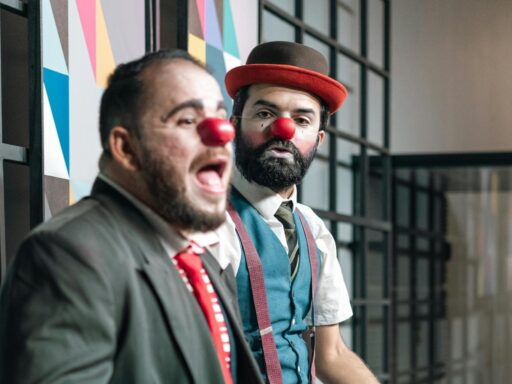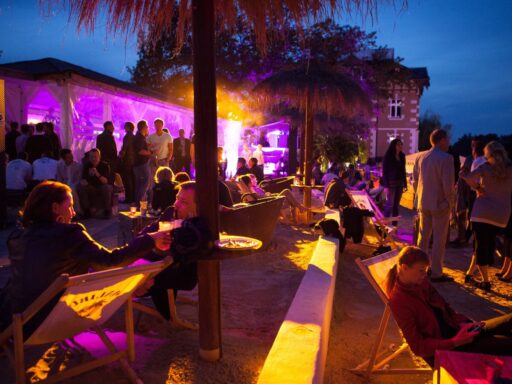“Laughter is the shortest distance between two people,” as Victor Borge wisely said. In the corporate world, shared laughter can bridge gaps, boost morale, and create lasting memories.
A well-placed comedic act can transform a standard corporate event into a truly engaging and memorable experience. However, finding the right fit can be tricky. You need an act that resonates with your audience, aligns with your company culture, and avoids any potentially offensive material.
This post serves as your comprehensive guide to navigating the world of comedy acts for corporate events, providing you with the essential knowledge to select the perfect entertainment for your next gathering.
Types of Comedy Acts: Finding the Perfect Fit for Your Event

The entertainment you choose sets the tone for your corporate event. When it comes to comedy, the options are diverse, each offering a unique experience.
Here’s a deeper dive into some popular choices:
Stand-up Comedians: A Classic Choice with Modern Twists
Stand-up comedy remains a staple for corporate events, offering a direct and engaging form of entertainment.
A skilled comedian can connect with an audience through relatable observations, witty commentary, and clever storytelling.
- Pros: Highly adaptable to different audiences and event formats. A vast pool of talent allows for a wide range of budgets. Can be tailored with specific jokes or themes relevant to the company or industry.
- Cons: The quality can vary significantly between performers. It’s crucial to thoroughly vet potential comedians to ensure their style aligns with your company culture and avoids offensive or inappropriate material.
- Styles: A Spectrum of Humor
- Observational Comedy: This style focuses on the everyday absurdities of life, finding humor in the mundane. Think Jerry Seinfeld’s focus on everyday annoyances and relatable situations. This style is often a safe bet for corporate events due to its broad appeal.
- Topical Comedy: This style tackles current events, news, and pop culture. While potentially very engaging, it requires careful consideration to avoid controversial topics that could alienate audience members. Think John Oliver’s satirical take on current affairs.
- Improvisational Stand-up: Some stand-up comedians incorporate improv into their act, taking suggestions from the audience and creating spontaneous jokes and scenarios. This adds an element of surprise and excitement.
- Storytelling: This style weaves personal narratives and anecdotes into the performance, creating a more intimate and engaging experience. This can be particularly effective for connecting with audiences on an emotional level.
- Clean vs. Edgy: This is a crucial distinction. “Clean” comedy avoids profanity, sexual innuendo, and controversial topics, making it suitable for a wider range of corporate settings. “Edgy” comedy pushes boundaries and may not be appropriate for all audiences.
- Audience Interaction: Typically minimal to moderate, often involving brief interactions or call-and-response, but skilled comedians can gauge the room and adapt accordingly.
Improv Troupes: Spontaneity and Engagement
Improv comedy thrives on spontaneity and audience participation, creating a unique and unpredictable experience every time.
- Benefits: Highly interactive and engaging, fostering a sense of shared experience and laughter. Excellent for team building and icebreakers, as it encourages collaboration and quick thinking.
- Factors to Consider: The troupe’s experience and reputation are paramount. Look for groups with a proven track record of performing in corporate settings. Consider their specific style of improv (short-form games like “Whose Line Is It Anyway?” or long-form scenes that develop over time) and ensure it aligns with your event’s goals.
- Audience Interaction: High; audience suggestions drive the performance, creating a dynamic and participatory atmosphere.
Magicians/Mentalists: Wonder and Intrigue
Magic and mentalism offer a different kind of entertainment, captivating audiences with illusions, mind-reading feats, and a sense of wonder.
- Entertainment Value: Provides a “wow” factor and creates a memorable experience. Can be a great icebreaker and conversation starter.
- Alignment with Event Tone: The style of magic is important. Close-up magic, performed for smaller groups or at cocktail receptions, offers an intimate and personal experience. Stage illusions are better suited for larger audiences and formal presentations. Ensure the act’s tone is appropriate – avoid anything too dark, spooky, or potentially offensive.
- Audience Interaction: Moderate, often involving volunteers from the audience or interactive illusions that engage the entire room.
Variety Acts: A Diverse Range of Entertainment
This category offers a broad spectrum of performers, from musical comedians who blend music and humor to jugglers, character performers, ventriloquists, and more.
- Suitability: Variety acts can be an excellent choice for events with diverse audiences or when you’re looking for something truly unique and memorable. They can also be tailored to specific themes or industries.
- Audience Interaction: Varies greatly depending on the specific act. Musical comedians often encourage sing-alongs or audience participation in their performances. Jugglers might involve audience members in simple tricks or demonstrations.
Also check our article:Family-Friendly Comedians: How to Find the Right Comedy for Your Audience
Factors to Consider When Choosing a Comedy Act: Ensuring a Successful Event

Choosing the right entertainment is crucial for any successful corporate event. When it comes to comedy, several key factors come into play.
This section provides a comprehensive guide to help you navigate these considerations and select the perfect comedic performance.Thoughtful planning when booking comedy acts for corporate events can make all the difference.
Audience: Understanding Your Attendees
Knowing your audience is the foundation of selecting appropriate entertainment. Consider these key aspects:
- Demographics: Analyze the age range, gender distribution, cultural backgrounds, and professional levels of your attendees. A younger, more diverse audience might appreciate different humor than a more senior, homogenous group.
- Preferences: What type of comedy do your attendees typically enjoy? Have they expressed preferences for observational humor, witty one-liners, physical comedy, or storytelling? Previous event feedback can be invaluable here.
- Sensitivities: Be acutely aware of potentially offensive topics. Politics, religion, sensitive social issues, and potentially divisive current events should generally be avoided unless you are absolutely certain they align with the event’s specific tone and the audience’s shared values.
Methods for Researching Your Audience:
- Pre-Event Surveys: Conduct short, targeted surveys before the event to gather information about attendees’ entertainment preferences. Include questions about their favorite comedians, preferred styles of humor, and any topics they would prefer to avoid.
- Post-Event Feedback Forms: Review feedback from previous events to identify what types of entertainment were well-received and what fell flat. This historical data can be extremely helpful in predicting future preferences.
- Registration Form Questionnaires: Incorporate questions about entertainment preferences directly into the event registration process. This allows you to gather data from attendees early on.
Event Type: Tailoring the Act to the Occasion
The type of event should heavily influence your choice of comedy acts for corporate events:
- Conferences and Seminars: These events often benefit from clean, observational humor or motivational speakers who incorporate comedic elements to keep the audience engaged. The focus should remain on the educational or professional content, with the comedy serving as a complementary element.
- Awards Ceremonies and Galas: A polished and professional comedian or emcee can keep the event flowing smoothly, introduce speakers, and add moments of levity between awards presentations. The humor should be celebratory and appropriate for a formal setting.
- Holiday Parties and Company Celebrations: These events typically have a more relaxed atmosphere, which might allow for slightly edgier humor. However, it’s still crucial to carefully consider your company culture and avoid anything that could make employees uncomfortable.
- Product Launches and Corporate Announcements: A comedian who can cleverly incorporate product-related jokes or themes can add a unique and memorable touch to the event. This can be a particularly effective way to generate buzz and excitement around a new product or service.
Budget: Understanding Costs and Negotiating Effectively

The cost of hiring comedy acts for corporate events can vary significantly:
- Realistic Expectations: The fees for comedians can range from a few hundred dollars for emerging local acts to tens of thousands of dollars for established headliners. Factors such as the comedian’s experience, popularity, the length of the performance, travel expenses, and technical requirements all influence the final cost.
- Negotiating Fees and Understanding Contracts: Be transparent about your budget from the outset. Negotiate fees, travel expenses, accommodation, technical rider requirements, and any other associated costs. Carefully review the contract before signing to ensure all terms are clearly defined and agreed upon.
Venue: Ensuring a Suitable Performance Space
The venue’s size, layout, and technical capabilities play a significant role:
- Stage, Sound System, and Lighting: Stand-up comedians, magicians, and many variety acts require a stage, a professional-grade sound system, and appropriate lighting to deliver their performance effectively.
- Space for Audience Interaction: Improv troupes and other interactive performers need ample space to move around and engage with the audience. Consider the stage size, seating arrangement, and overall layout of the venue.
Company Culture: Reflecting Your Values and Image
The chosen comedic act should align seamlessly with your company’s values, mission, and overall image:
- Edgy Humor vs. Clean Humor: A more traditional or conservative company might prefer clean, family-friendly humor, while a more modern or relaxed startup might be open to edgier material. It’s essential to strike the right balance to avoid alienating any employees or stakeholders.
- Corporate-Friendly vs. More Relaxed: Consider the overall tone and atmosphere you want to create at the event. A formal corporate event might call for a more polished and professional comedic style, while a casual company gathering might be more suited to a more relaxed and informal performance.
Checking References and Reviews: Performing Due Diligence
Thoroughly vetting potential performers is crucial:
- Past Client Testimonials and Online Reviews: Request testimonials from previous clients and check online review platforms to gauge the comedian’s performance history and reputation.
- Questions to Ask When Checking References: When contacting references, ask specific questions about the comedian’s professionalism, ability to connect with the audience, adherence to the agreed-upon terms, and any other relevant details.
Tips for a Successful Comedy Act: Ensuring a Smooth and Enjoyable Performance

Once you’ve selected the perfect comedic act, there are several steps you can take to ensure a smooth and enjoyable performance for everyone involved.
Clear Communication (Providing a Brief): Setting the Stage for Success
Clear and open communication with the comedian is essential. Providing a detailed brief ensures they understand your expectations and can tailor their performance accordingly.
- Essential Information to Include in the Brief:
- Audience Demographics: Provide details about the age range, gender distribution, professional backgrounds, and any other relevant information about your attendees.
- Event Schedule: Outline the event’s timeline, including the time allotted for the comedy performance, any breaks or intermissions, and any other relevant details.
- Company Culture and Values: Clearly communicate your company’s values and any specific topics that should be avoided.
- Specific Requests: If you have any specific requests for the performance, such as incorporating certain themes or avoiding certain types of jokes, be sure to communicate them clearly.
- “Off-Limit” Topics: Explicitly state any topics that are off-limits, such as sensitive political or social issues, religious discussions, or anything that could be potentially offensive to your audience.
Sample Brief Template:
Event Name: [Event Name]
Date: [Date]
Time of Performance: [Time]
Location: [Venue Name and Address]
Audience Demographics: [Provide details about the audience]
Event Schedule: [Provide a brief outline of the event schedule]
Company Culture/Values: [Describe your company culture and values]
Specific Requests: [List any specific requests for the performance]
Off-Limit Topics: [List any topics that should be avoided]
Contact Person: [Your Name and Contact Information]
Technical Setup: Ensuring a Professional Presentation
Proper technical setup is crucial for a successful comedy performance:
- Sound, Lighting, and Staging: Ensure the venue has a professional-grade sound system, adequate lighting, and a suitable stage or performance area.
- Technical Rider: The comedian or their agent will typically provide a technical rider outlining their specific technical requirements. Review this document carefully and communicate it to the venue’s technical staff.
- Communication with the Venue: Establish clear communication with the venue’s technical staff to ensure all technical requirements are met.
Time Management: Sticking to the Schedule

Adhering to the agreed-upon performance time is essential:
- Optimal Performance Length: The optimal length of a comedy performance for a corporate event typically ranges from 30 to 60 minutes, depending on the event’s overall schedule and format.
- Sticking to the Schedule: Communicate the agreed-upon performance time to the comedian and ensure they adhere to the schedule. This is especially important if the event has a tight timeline.
Handling Unexpected Situations: Being Prepared for Anything
Even with careful planning, unexpected situations can arise. It’s important to have strategies in place to handle them:
- Hecklers: Have a plan for dealing with hecklers. The comedian should ideally be experienced in handling such situations, but it’s good to have a backup plan in case the situation escalates.
- Technical Difficulties: Have a backup plan in case of technical difficulties, such as sound or lighting malfunctions. This might involve having backup equipment on hand or having a contingency plan in place.
- Other Unforeseen Issues: Be prepared to address other unforeseen issues, such as late starts, unexpected interruptions, or audience members who become disruptive.
You can also read our article “How to Hire a Comedian for Your Wedding or Private Party”
Conclusion
Incorporating comedy acts for corporate events can be a powerful way to enhance engagement, boost morale, and create lasting memories. By carefully considering the type of act, understanding your audience, and ensuring clear communication and proper planning, you can guarantee a successful and entertaining experience. From stand-up comedians to improv troupes and variety acts, the options are plentiful.
Remember to prioritize alignment with your company culture and conduct thorough research.
With thoughtful planning, you can transform your next corporate gathering into a truly memorable and enjoyable event through the power of laughter.
Since you are planning to hire a comedian, below is the list of our recommended comedians which you can book or hire for the event:






